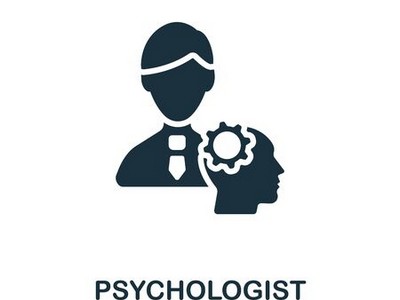
Anxiety Depression Test Psychologist Mermaid Beach (07) 5539 9798
Depression Psychologist Mermaid Beach

Introduction: Depression From Stress Psychologist Mermaid Beach Near Me
In today's busy and requiring world, psychological health problems have become progressively widespread. 2 of the most typical psychological health disorders are stress and anxiety and anxiety. While they might share some similarities, it is important to comprehend the differences between the two conditions in order to seek suitable treatment and assistance. This post intends to offer a comprehensive understanding of stress and anxiety and depression, their surfersparadisechiropractic.com.au symptoms, triggers, and offered treatments.
Anxiety vs. Depression: Understanding the Differences and Similarities
What is Anxiety?
Anxiety is a typical human emotion that everybody experiences from time to time. It is identified by sensations of worry, worry, or unease. Nevertheless, when these feelings end up being excessive or persistent, it might indicate a stress and anxiety disorder.
Symptoms of Anxiety
- Excessive worrying
- Restlessness
- Trouble concentrating
- Irritability
- Muscle tension
- Sleep disturbances
Causes of Anxiety
Anxiety can be brought on by a mix surfersparadisechiropractic.com.au of genetic, ecological, and psychological factors. Traumatic life events, chronic tension, or a family history of stress and anxiety disorders can increase the danger of establishing an anxiety disorder.
What is Depression?
Depression is a mood condition that impacts how a person thinks, feels, and acts. It goes beyond typical sensations of unhappiness or sorrow and can substantially affect daily functioning and quality of life.
Symptoms of Depression
- Persistent sadness or emptiness
- Loss of interest or satisfaction in activities
- Fatigue or low energy levels
- Changes in appetite or weight
- Difficulty sleeping or oversleeping
- Feelings of worthlessness or guilt
Causes of Depression
Depression is a complicated condition with numerous contributing factors. It can be brought on by hereditary predisposition, biochemical imbalances in the brain, hormonal changes, certain medical conditions, or traumatic life events.
Similarities Between Anxiety and Depression
While anxiety and anxiety stand out disorders, they typically coexist and share some typical symptoms. Both conditions can trigger sensations of restlessness, irritability, problem concentrating, and sleep disruptions. Furthermore, individuals with anxiety or depression might experience physical symptoms such as headaches, gastrointestinal concerns, or chronic pain.
Differences Between Stress and anxiety and Depression
Emotional Symptoms
Anxiety is primarily characterized by extreme concern and fear, while anxiety is marked by consistent unhappiness and loss of interest in activities. Individuals with stress and anxiety may feel on edge or constantly on guard, whereas those with depression may experience a sense of despondence or emptiness.
Physical Symptoms
While both anxiety and depression can manifest physically, the particular signs differ. Stress and anxiety frequently provides with symptoms such as muscle stress, racing heart, shortness of breath, and shivering. On the other hand, depression may trigger low energy levels, changes in hunger or weight, and sleep disturbances.
Thought Patterns
Anxiety tends to be associated with excessive rumination and overthinking. People with stress and anxiety typically have racing thoughts and may have a hard time to control their concerns. On the other hand, depression is defined by unfavorable thought patterns such as self-criticism, feelings of worthlessness, and a cynical outlook on life.
Impact on Daily Functioning
Both stress and anxiety and anxiety can significantly affect everyday functioning; however, they do so in different ways. Anxiety can cause avoidance habits or difficulty focusing on tasks due to excessive concern. Anxiety frequently results in decreased motivation, loss of interest in formerly taken pleasure in activities, and difficulties with decision-making.
FAQs about Anxiety vs. Depression
Q: Is anxiety a symptom of depression? A: While stress and anxiety can be a symptom of anxiety for some people, it is not constantly the case. Stress and anxiety conditions and depression are distinct mental health conditions that can coexist however likewise take place independently.
Q: Can you have both anxiety and depression at the very same time? A: Yes, it is possible to have both stress and anxiety and anxiety at the same time. This is called comorbidity, and it is fairly typical for individuals with mental health disorders.
Q: Is stress and anxiety or anxiety more common? A: Anxiety disorders are a little more prevalent than anxiety, but both conditions are amongst the most typical mental health conditions worldwide.
Q: Can stress and anxiety turn into depression? A: While anxiety can add to the advancement of depression sometimes, it does not necessarily cause depression. Nevertheless, chronic and neglected anxiety can increase the risk of developing depressive symptoms.
Q: Are there efficient treatments for stress and anxiety and depression? A: Yes, there are numerous evidence-based treatments readily available for stress and anxiety and anxiety. These may include treatment (such as cognitive-behavioral therapy), medication, way of life modifications, and self-help strategies.
Q: For how long does anxiety or anxiety last? A: The period of anxiety or anxiety can differ commonly depending upon specific elements such as treatment adherence, support group, and underlying causes. Some individuals may experience severe episodes that solve within a couple of weeks or months, while others may have chronic conditions that need ongoing management.
Struggling With Depression Psychologist Mermaid Beach
Anxiety And Depression Test Psychologist Mermaid Beach Near Me
Isabella Whittingham Registered Psychologist Gold Coast
Surfers Paradise Chiropractic Centre-Dr. Bruce Whittingham
12 Thomas Drive, Surfers Paradise QLD 4217
(07) 5539 9798
https://surfersparadisechiropractic.com.au
Mental Health Depression Psychologist Mermaid Beach Near Me